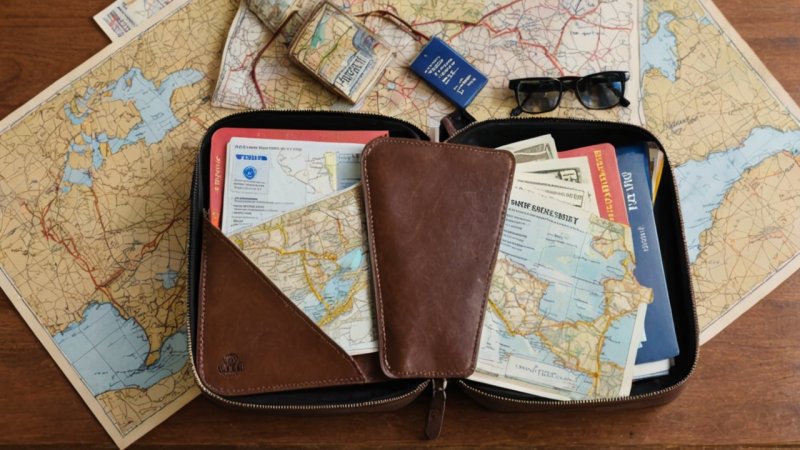Traveling opens up a world of possibilities, allowing individuals to explore new cultures, enjoy breathtaking landscapes, and create unforgettable memories. However, with all the excitement of travel comes the responsibility of ensuring that one’s important documents are safe and secure. Losing vital documents such as passports, identification, or travel itineraries can lead to significant stress and complications during a trip. This article delves into the importance of keeping copies of important documents while traveling, offering insights, strategies, and tips to ensure a smooth travel experience.
Understanding the Importance of Document Safety
When traveling, your documents serve as your lifeline. They are essential for identification, legal matters, and accessing services. Here are several reasons why keeping copies of important documents is crucial:
- Identity Verification: Passports and identification cards are essential for verifying your identity when boarding flights, checking into hotels, or accessing various services.
- Emergency Situations: In case of theft, loss, or emergencies, having copies can expedite the process of replacing lost documents.
- Travel Insurance Claims: Many travel insurance policies require documentation to process claims, making copies vital for potential reimbursements.
- Legal Requirements: Certain countries have specific regulations regarding documentation, and having copies may be necessary for compliance.
Types of Important Documents to Copy
Not all documents are created equal, and some are more critical than others. Below is a list of documents that travelers should consider keeping copies of:
- Passport: The most vital document for any international traveler. It’s advisable to keep a photocopy of the passport’s identification page.
- Visa: If traveling to a country that requires a visa, ensure you have a copy of your visa alongside the passport.
- Travel Insurance Policy: A copy of your travel insurance policy can facilitate claims in emergencies.
- ID Cards: Besides your passport, other forms of identification such as driver’s licenses or national ID cards are essential.
- Itineraries and Tickets: Copies of flight tickets, accommodation bookings, and activity itineraries can help keep your plans organized and provide proof of bookings.
- Emergency Contacts: A list of important contacts, including family, friends, and your country’s embassy, can be valuable in emergencies.
How to Safely Store Copies
Having copies of your documents is only half the battle; how you store them is equally important. Here are some effective methods:
1. Digital Copies
Using technology can be a lifesaver. Here are some tips for creating and storing digital copies:
- Cloud Storage: Services like Google Drive, Dropbox, or OneDrive allow you to access your documents from anywhere with an internet connection.
- Email: Emailing yourself copies can also provide easy access. Just ensure your email account is secure.
- Secure Apps: There are apps designed for document storage that offer encryption, adding an extra layer of security.
2. Physical Copies
While digital copies are convenient, physical copies are also necessary. Here’s how to store them:
- Travel Wallet: Use a travel wallet to keep your documents organized and secure. Choose one with RFID-blocking technology for added protection.
- Separate Locations: Don’t keep all your copies in one place. Store them in different bags or locations to prevent total loss.
- Travel Locks: If traveling with luggage, consider using locks to secure compartments where important documents are stored.
What to Do If You Lose Important Documents
Even with the best precautions, documents can still be lost. Here’s a step-by-step guide on what to do if you find yourself in this situation:
1. Stay Calm
Panic can cloud your judgment. Take deep breaths and focus on resolving the issue systematically.
2. Report to Local Authorities
If your passport or ID is stolen, report it to the local police. Obtain a copy of the report, as it may be needed for replacements.
3. Contact Your Embassy or Consulate
Your country’s embassy can assist in replacing a lost passport. Be prepared to present any copies or identification you have.
4. Notify Your Travel Insurance Provider
If you have travel insurance, inform your provider of the situation to initiate any claims for lost items.
5. Secure Temporary Identification
In some cases, you may be able to obtain a temporary ID from your local embassy, which can help you continue your travels.
Tips for Keeping Your Documents Safe While Traveling
Prevention is always better than cure. Here are some tips to keep your documents safe throughout your travels:
- Be Aware of Your Surroundings: Stay vigilant, especially in crowded areas such as airports and tourist attractions.
- Limit Document Access: Only carry essential documents when going out. Leave unnecessary items secured in your accommodation.
- Use Hotel Safes: Utilize hotel safes to store your documents when you don’t need them for the day.
- Travel Insurance: Consider purchasing travel insurance that covers loss of personal belongings, including documents.
- Backup Plans: Have a backup plan in case documents are lost. Know the location of your country’s embassy or consulate in advance.
Conclusion
Traveling can be one of the most rewarding experiences of your life, but it also requires careful planning and foresight, particularly regarding important documents. Keeping copies of vital documents not only helps in safeguarding your identity but also ensures that you can navigate any challenges that arise while traveling. By understanding the importance of document safety, knowing what to copy, and employing effective storage methods, you can significantly reduce the risk of complications during your travels. So, as you prepare for your next adventure, take the time to organize your important documents and enjoy peace of mind on your journey.






